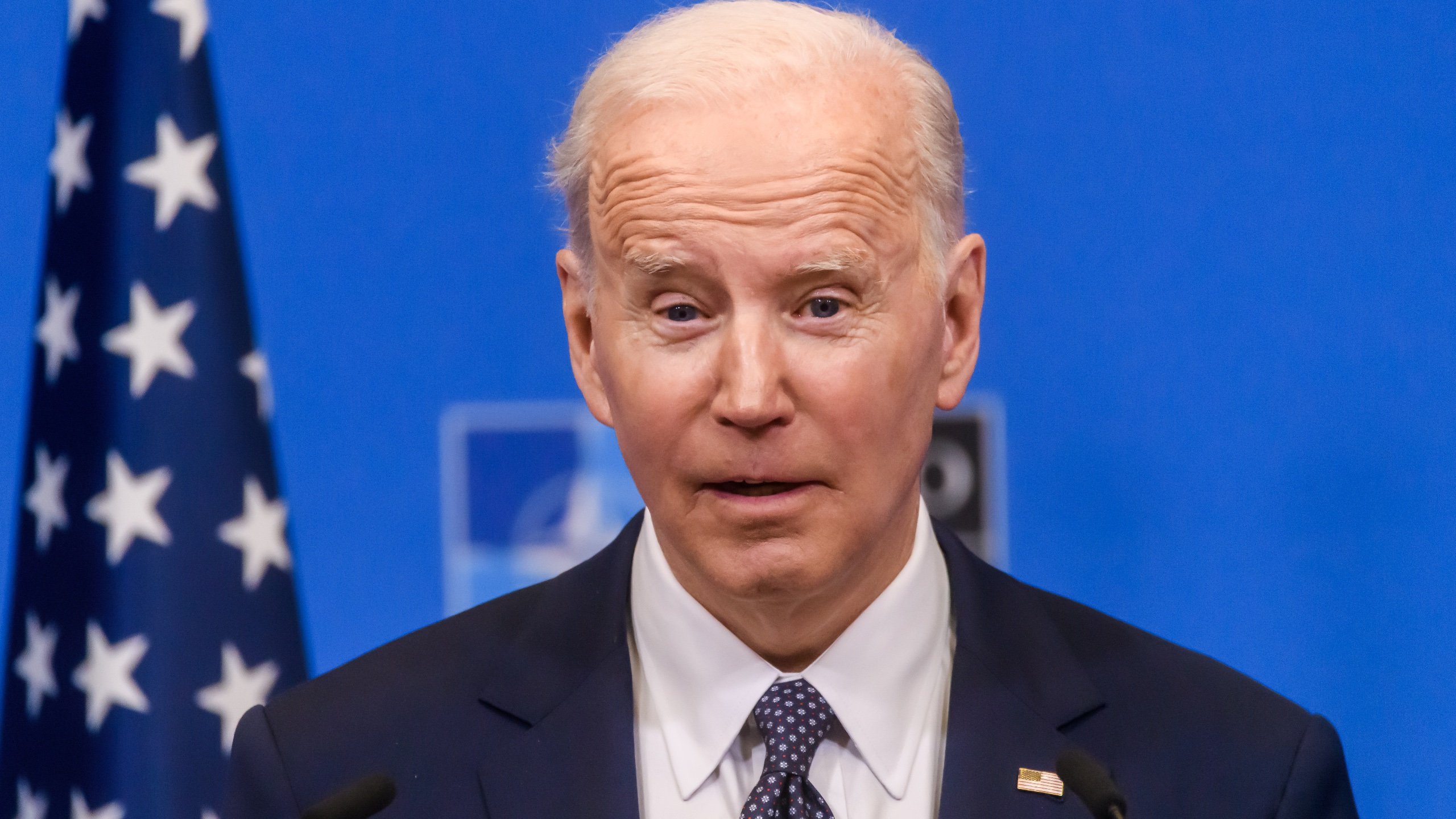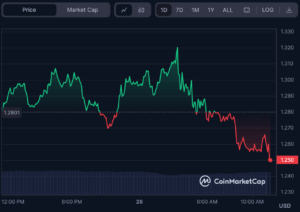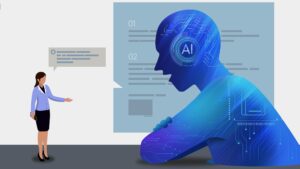
In a political clash, tech lobbyists, Republican lawmakers, and conservative groups are intensifying efforts to dismantle key aspects of President Joe Biden’s executive order on artificial intelligence (AI).
This order, leveraging the Defense Production Act (DPA), compels tech companies to disclose details about advanced AI projects to the Commerce Department. The move, deemed an overreach by critics, has sparked a heated debate over executive authority and the future of AI regulation in the United States.
Also read: UAE President Establishes Artificial Intelligence Council with New Law
The controversial use of the defense production act
The White House, under Biden’s directive, has employed the Defense Production Act, a law with broad powers, to regulate the AI sector in the name of national security. Critics, including Senator Mike Rounds and the tech trade association NetChoice, view this as a misuse of the DPA, arguing that the AI situation does not constitute a national emergency. This interpretation of the DPA, they assert, deviates from its original purpose and represents executive overreach.
However, past presidents have invoked the DPA for various non-war-related reasons, including efforts by both Donald Trump and Joe Biden to accelerate the federal COVID-19 response. The Biden administration’s decision to track AI development under the DPA, nonetheless, has been met with opposition from tech lobbyists who argue that it stifles innovation and violates executive authority.
On the other hand, the White House has refrained from commenting on the specific reasons for using the DPA in this context. Ben Buchanan, the White House’s special advisor on AI, defended the approach, emphasizing the national security concerns surrounding AI. The Commerce Department described the executive order as an information-gathering exercise to understand practices around advanced AI models.
The legal and political backlash
Tech lobbyists and legal experts have indicated potential legal challenges to the executive order, foreseeing a “swift rebuke from the courts.” While it remains uncertain whether Congress will reform the defense statute, Senator Ted Cruz’s office is exploring DPA reforms as a means to limit the AI executive order’s reach. Senate Republican Whip John Thune is also working with Cruz and others to curb the DPA’s authority in creating AI testing and training protocols.
On the same accord, the Americans for Prosperity Foundation, a nonprofit founded by the Koch brothers, has filed two Freedom of Information Act requests and a lawsuit against the Commerce Department. They are demanding agency records related to the DPA and artificial intelligence. The group aims to push Congress to either allow the defense law to lapse or implement significant reforms to prevent what they view as the White House’s misuse of the DPA.
The Supreme Court is also a factor in the debate, as it weighs a lawsuit attached to the Koch network. While the case is related to fishing rules, its outcome could impact Chevron deference, which allows federal agencies to interpret ambiguous laws. It is in this regard that the importance of the AI executive order becomes critical since its fulfillment of regulatory goals will be dependent on the actions of federal agencies.
Implications for AI safety and innovation
Opposition to the Biden administration’s tactics reveals a tough posture for enlisting AI safety standards amidst broader political disagreements over regulation of private enterprise. The situation illustrates what a complicated task it is for the government to navigate emerging technology, national security, and regulatory policy.
With Congress struggling to pass tech-related regulations, the DPA offers a rare opportunity for the government to address AI concerns. However, this approach is fraught with controversy and legal hurdles, reflecting the broader struggle to balance innovation with oversight in the rapidly evolving AI landscape.
The ongoing debate raises a pivotal question: How can the U.S. effectively regulate AI to ensure both national security and technological advancement without stifling innovation? The resolution of this issue will have far-reaching implications for the role of AI in society and the nature of government intervention in the tech industry.
- SEO Powered Content & PR Distribution. Get Amplified Today.
- PlatoData.Network Vertical Generative Ai. Empower Yourself. Access Here.
- PlatoAiStream. Web3 Intelligence. Knowledge Amplified. Access Here.
- PlatoESG. Carbon, CleanTech, Energy, Environment, Solar, Waste Management. Access Here.
- PlatoHealth. Biotech and Clinical Trials Intelligence. Access Here.
- Source: https://metanews.com/campaign-gains-momentum-to-overturn-bidens-ai-executive-directive/
- :has
- :is
- :not
- a
- About
- accelerate
- accord
- Act
- actions
- address
- advanced
- advancement
- advisor
- against
- agencies
- agency
- AI
- AI models
- AI regulation
- aims
- allow
- allows
- also
- Americans
- amidst
- an
- and
- approach
- ARE
- argue
- around
- artificial
- artificial intelligence
- Artificial intelligence (AI)
- AS
- aspects
- Association
- authority
- Balance
- BE
- becomes
- been
- ben
- biden
- both
- broad
- broader
- brothers
- by
- Campaign
- CAN
- case
- challenges
- chevron
- Clash
- Commenting
- Commerce
- Companies
- complicated
- Concerns
- Congress
- conservative
- constitute
- context
- controversial
- controversy
- could
- Council
- Court
- Courts
- COVID-19
- Creating
- critical
- Critics
- debate
- decision
- deemed
- Defense
- demanding
- Department
- dependent
- described
- details
- Development
- Disclose
- does
- donald
- Donald Trump
- effectively
- efforts
- either
- emergency
- emerging
- Emerging Technology
- ensure
- Enterprise
- establishes
- evolving
- executive
- executive order
- Exercise
- experts
- Exploring
- factor
- far-reaching
- Federal
- filed
- Fishing
- For
- foreseeing
- Foundation
- Founded
- Freedom
- from
- fulfillment
- future
- Future of AI
- Gains
- Goals
- Government
- government intervention
- Group
- Group’s
- hand
- Have
- House
- How
- However
- HTTPS
- Hurdles
- illustrates
- Impact
- implement
- implications
- importance
- in
- Including
- indicated
- industry
- information
- Innovation
- Intelligence
- intensifying
- interpretation
- intervention
- issue
- IT
- ITS
- joe
- Joe Biden
- John
- Key
- Koch
- landscape
- Law
- lawmakers
- Laws
- lawsuit
- Legal
- legal experts
- leveraging
- LIMIT
- lobbyists
- means
- met
- mike
- misuse
- models
- Momentum
- move
- name
- National
- national security
- Nature
- Navigate
- network
- New
- Nonprofit
- of
- Offers
- Office
- on
- ongoing
- Opportunity
- opposition
- or
- order
- original
- original purpose
- Other
- Others
- Outcome
- over
- overreach
- Oversight
- pass
- past
- pivotal
- plato
- Plato Data Intelligence
- PlatoData
- policy
- political
- potential
- powers
- practices
- president
- Presidents
- prevent
- private
- Production
- projects
- prosperity
- protocols
- purpose
- Push
- question
- raises
- rapidly
- RARE
- reach
- Read
- reasons
- records
- reflecting
- reform
- regard
- Regulate
- Regulation
- regulations
- regulatory
- related
- remains
- represents
- Republican
- requests
- Resolution
- response
- Reveals
- Role
- rounds
- rules
- s
- Safety
- same
- sector
- security
- Senate
- Senator
- significant
- since
- situation
- Society
- sparked
- special
- specific
- standards
- States
- stifles
- Struggle
- Struggling
- Supreme
- Supreme Court
- Surrounding
- tactics
- Task
- tech
- tech companies
- tech industry
- technological
- Technology
- Ted
- Testing
- that
- The
- The Future
- they
- this
- to
- tough
- track
- trade
- Training
- trump
- two
- u.s.
- Uncertain
- under
- understand
- United
- United States
- use
- using
- various
- View
- weighs
- What
- whether
- which
- while
- white
- White House
- WHO
- will
- with
- without
- working
- zephyrnet












